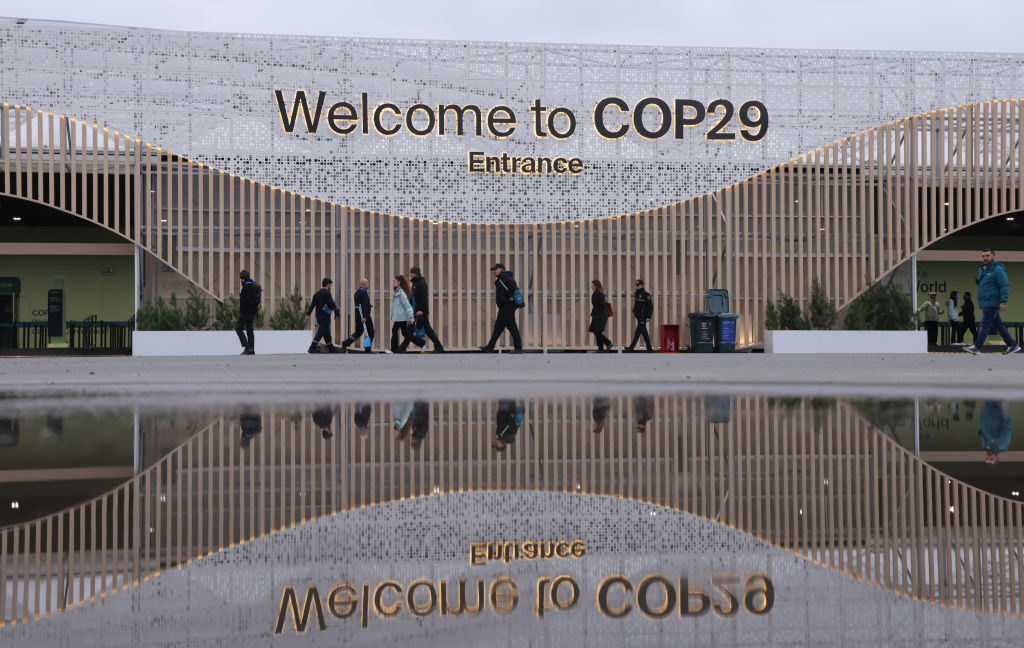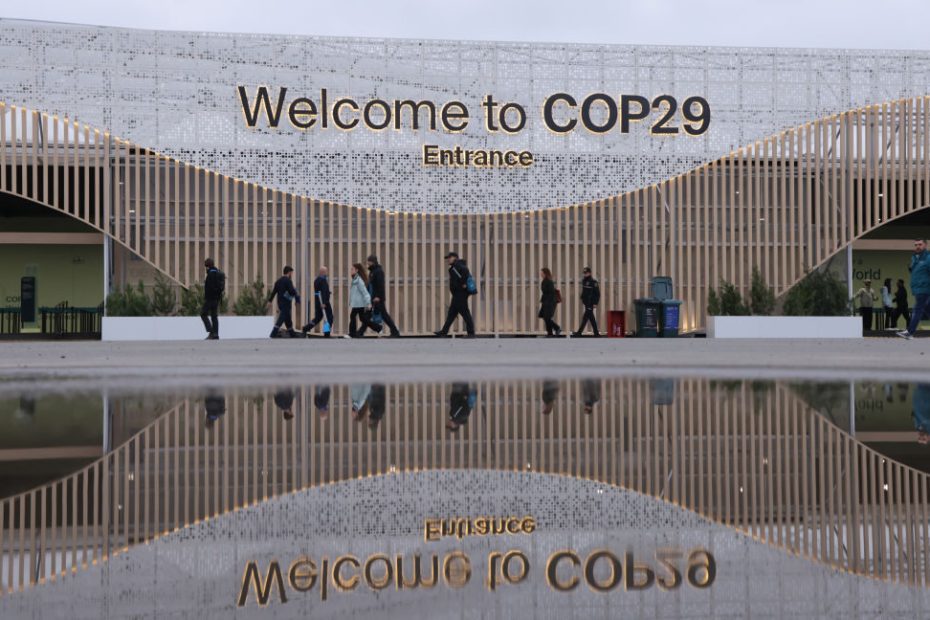
The world's most important climate talks were brought back from the brink after poorer countries reluctantly accepted a financing package of “at least” $300 billion a year from rich countries after bitter negotiations.
Fears of budget deficits around the world and the election of Donald Trump as US president, who has described climate change as a “hoax”, prompted developing countries to accept the slightly improved package after 2:30 a.m. local time in Baku on Sunday .
The UN climate summit COP29 almost collapsed twice on Saturday evening and into the early hours of Sunday morning, as vulnerable countries walked out of negotiations and India protested fiercely.
As the gavel fell, Neelesh Shah, India's chief negotiator, jumped to his feet to ask to speak. When he was ignored, he made a furious timeout gesture above his head and led his team onto the stage in protest.
From the audience, Indian delegation member Chandni Raina said the country was “extremely disappointed” by the abrupt approval of the deal, adding: “This was staged.”
“It's a paltry amount,” she says. “I'm sorry to say that we cannot accept this. We aim for a much higher ambition from the developed countries.” The agreement was “nothing more than an optical illusion,” she added.
The broadside was followed by objections from Bolivia, Chile and Nigeria, who were told by COP29 President Mukhtar Babayev that their statements had been noted. Smaller countries, such as Malawi, Fiji and the Maldives, joined the complaint.
Simon Stiell, head of the UN's climate change department, said the new goal was an “insurance policy for humanity, amid the worsening climate impacts affecting every country,” but added that it is “no time for victory laps'.
European Union Climate Commissioner Wopke Hoekstra tried to reassure disappointed smaller countries, saying he was “confident we will reach $1.3 trillion.” Economists say developing countries need to switch to green energy and cope with climate change.

